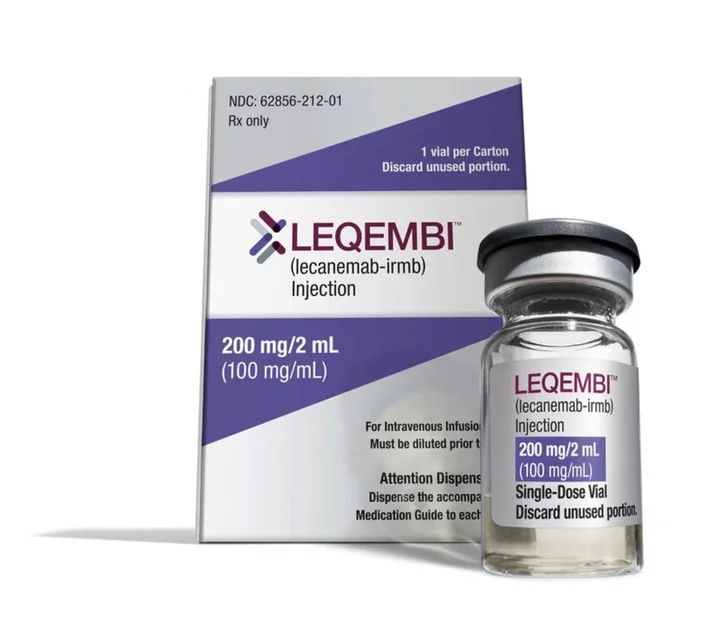By Deena Beasley
The U.S. Food and Drug Administration on Thursday granted standard approval to Eisai and Biogen's Leqembi for patients with Alzheimer's disease.
The FDA decision is expected to trigger broader coverage of the $26,500-a-year drug by the U.S. government's Medicare health plan for people aged 65 and older. Leqembi was granted "accelerated" FDA approval in January, but Medicare restricted coverage only to patients in clinical trials.
WHAT IS LEQEMBI?
Leqembi is an antibody designed to remove sticky deposits of a toxic protein called amyloid beta from the brains of Alzheimer's patients. The drug is administered every two weeks as an intravenous infusion.
Leqembi was shown in a pivotal trial to slow the rate of cognitive decline by 27% compared with a placebo after 18 months.
WHO WILL USE IT?
The FDA label for the drug says it should be started when patients are in the mild cognitive impairment or mild dementia stage of the degenerative brain disease.
The FDA recommends on Leqembi's label that doctors conduct testing for a gene called APOE4 that is associated with a higher risk of Alzheimer's as well as brain swelling associated with amyloid-lowering drugs. The FDA included a "boxed warning" that flags the risk of brain swelling on the label.
The agency does not require APOE4 genetic testing and doctors and patients will need to weigh the risk of brain swelling against the drug's potential benefits.
Around 25% of the population has one copy of the APOE4 gene, while up to 3% have two copies of the gene, according to the National Institute on Aging.
The FDA also warns that doctors should be particularly cautious when considering Leqembi for patients taking anticoagulants, which can also raise the risk of bleeding in the brain.
Eisai has estimated that the number of U.S. patients diagnosed with early Alzheimer's would total around 100,000 in Leqembi's first three years on the market.
More than 6 million Americans have Alzheimer's, according to the Alzheimer's Association.
WHO WILL PAY FOR IT?
Because it is a disease of aging, most Alzheimer's patients are covered by Medicare, which had effectively denied coverage of Leqembi under the accelerated approval it received in January. The drug has a U.S. list price of $26,500 a year.
With standard FDA approval, Medicare has said it will reimburse patients for the treatment as long as their doctors collect data and submit it to a free health agency database, known as a registry.
Medicare is expected to cover about 80% of the cost, with patients at least partially responsible for the other 20%, according to a recent study published in JAMA Internal Medicine.
The study said Leqembi patients could have annual out-of-pocket costs of about $6,600 depending on the state they live in and whether they have supplemental insurance, while some lower-income people who also qualify for Medicaid would pay nothing out-of-pocket.
Eisai also offers support programs to help eligible patients afford the cost of the new drug.
WHERE WILL IT BE AVAILABLE?
Leqembi has been available for doctors to prescribe since its accelerated approval in January, but very few patients have been treated with the drug due to Medicare's payment restrictions.
Eisai said it is expanding efforts to get health centers ready to use Leqembi.
(Reporting by Deena Beasley in Los Angeles; Additional reporting by Julie Steenhuysen in Chicago; Editing by Matthew Lewis)

